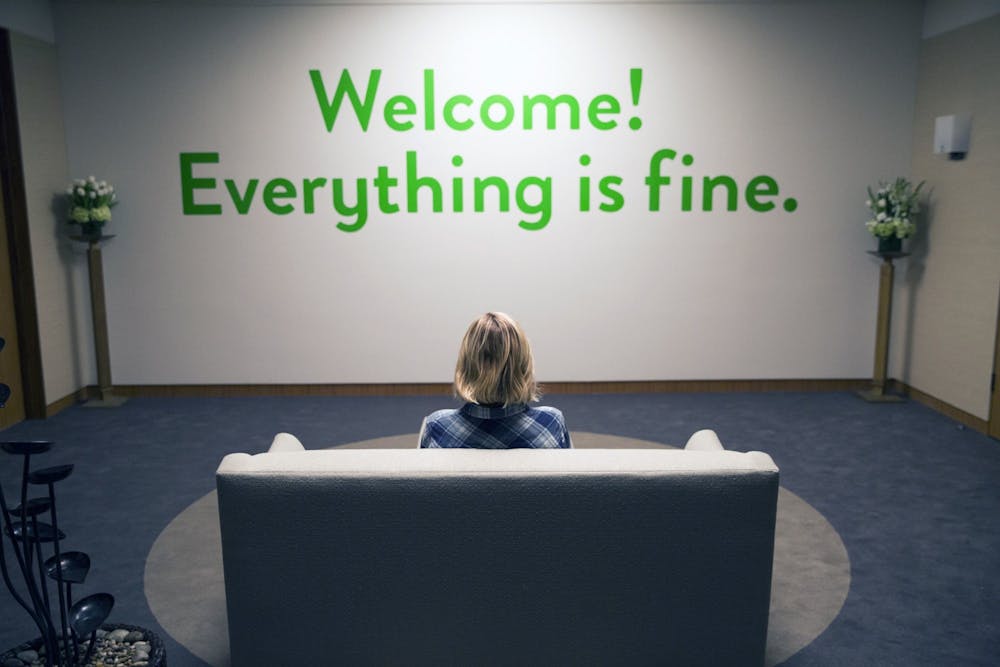“The Good Place” series finale aired Jan. 30 and millions of viewers said goodbye to characters they weren’t ready to let go of.
Even though the show is over, its influence doesn’t have to be. The show’s moral and political lessons should empower us to be better people and fight better fights.
“The Good Place” begins with the premise that Eleanor Shellstrop (Kristen Bell), a bad person who recently died, has mistakenly made it into the Good Place. She convinces philosophy professor Chidi Anagonye (William Jackson Harper), who is also in the Good Place, to teach her how to be a better person so she can stay and avoid eternal damnation.
It is eventually revealed that Chidi, Eleanor and their friends Tahani (Jameela Jamil) and Jason (Manny Jacinto) have been in the Bad Place the whole time. With the help of the reformed demon Michael (Ted Danson) and helper Janet (Darcy Carden), they discover that no one has made it into the Good Place in centuries.
The rest of the show is a quest made by these six characters to not only to save themselves and others but to reform the points system that grants people access to the Good or Bad Place, which allocates positive points for good actions and negative points for bad actions, proportional to the gravity of the action.
From season one, the show establishes itself as on par with other Michael Schur comedies, such as “Parks and Recreation” and “Brooklyn Nine-Nine.” But it also establishes itself as something more profound in the pilot episode when Eleanor commits to becoming better, and Chidi risks his place in heaven to help her.
The show is driven by moral philosophies, with Chidi’s ethics lessons driving the show’s moral themes. The viewers learn complex philosophies packaged in jokes based on philosophical thought experiments that usually don't make it out of classrooms, such as the trolley problem, which is a hypothetical question that asks whether someone will let five people be run over by a train or physically divert the train to kill one person.
They also learn that being good requires learning from others. Eleanor has to learn to care about others, Chidi has to learn to take a side, Tahani has to learn to care about more than her image and status and Jason doesn’t learn much, but he often manages to help.
“The Good Place” is far from the only sitcom with character development, but these characters take the philosophies they learn together, internalize them and translate conscious moral choices into their behaviors. Our moral codes, the characters show us, mean nothing if they don’t improve how we treat others.
The characters discover the moral lessons they learn apply to political and structural questions of justice in addition to their specific lives. They later find that no one has gotten into the Good Place for centuries because of the unintended consequences of their actions; even simple actions, such as buying roses for a loved one, lose points because of exploitative labor practices that made such a purchase possible.
In addition to saving themselves, the characters seek to help people who have wronged them, and to change system so it saves others, even if it means they might lose personally. In the final episodes, they settle upon a system in which everyone deserves the chance to become a better person.
“The Good Place” gave relatable examples of living out philosophical concepts that many viewers otherwise would not have learned or understood. It is a story of loss and a story of profound sacrifices, yes, but it is also a story of humanity and growth and redemption.
As we enter a new decade of learning, living and improving in a world that sometimes feels like the Bad Place, we should remember what “The Good Place” can teach us: We are only good to the extent that we are striving to be good. We are only good to the extent that we are trying to make other people’s lives better. And, on broader social and political issues, we are only good to the extent that we are helping people who cannot help themselves.






